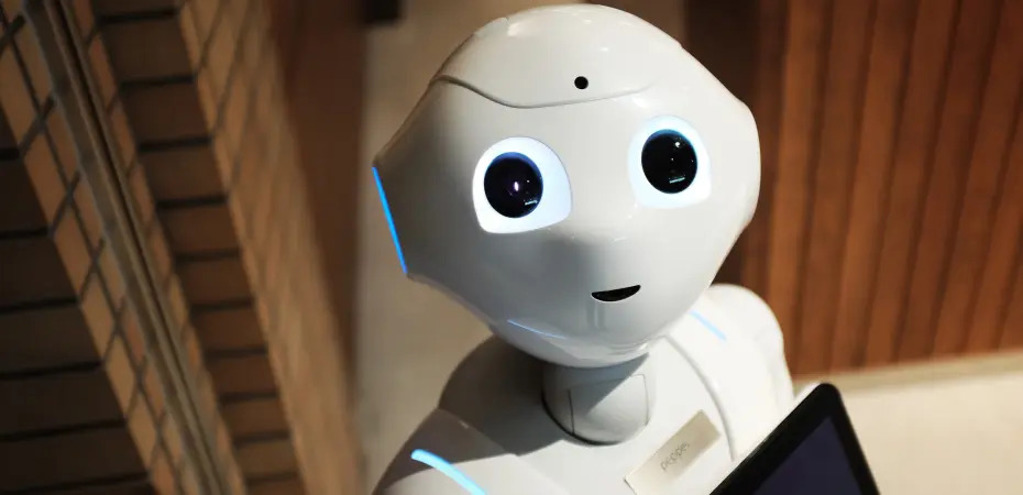Automation does not necessarily entail unemployment; realizing why not explains just how limited our thinking is when it comes to transforming the workplace.
In the Johnny Depp version of Charlie and the Chocolate Factory, the plot’s “call to adventure” moment is when the young Charlie’s working class father who works at a toothpaste container factory is fired because the managers acquire a machine that can automatically do his job of fitting the lids onto the container bodies. This plot device renders visible real fears that have existed for labour since the Industrial Revolution over a hundred years before the film was released.
While some may only be worried about automation’s unemployment when it comes to the old-fashion Fordist factory with low-skill iterative work, even in more technologically literate/white-collar jobs, automation proves to be an unemployment machine.
Automation in the production process, however, does not necessarily entail unemployment. In other words, automation and unemployment are correlated and not based on a causal relationship. It’s only under the dominant traditional workplace structure with owners of the means of production and labourers who sell their labour for subsistence that the choice between automation and keeping jobs becomes an either-or.
To illustrate this point let’s concoct an example using the premise of Charlie and the Chocolate Factory.
Let’s say we’re at Charlie’s dad’s toothpaste factory. The managers at the factory implement lid fitting machines that make the corporation’s production process twice as efficient as before. From the managerial perspective, it makes all the sense to get rid of roughly half of their workers in order to absorb their wages to profits now that they’re not needed and are less efficient. It makes sense from their point of view because you don’t need to pay machines a wage, just occasional upkeep costs and the marginal fixed costs of wear-and-tear.
But it’s a totally legitimate option from a financial — and some would say ethical — point of view to simply retain the entirety of the workers and half their overall working time to adjust to the increased productivity so as not to be inefficient; what neoclassical economics explains as the point beyond which there’s a diminishing returns of labour. Don’t the workers make less now that they work less? Not necessarily. The increased efficiency created by the new lid fitting machines means the organization is more productive, leading to more profits for less money because it’s no longer living labour fitting lids in the form of workers which need wages for shelter, food and break time.
The extra profit generated from the machines’ efficiency can be used to up the wages of all the workers at the toothpaste factory during their now halved total work time to make up for the difference that would result from wages remaining the same with the workers working for half the time. Now workers have extra leisure time to develop their talents, rest, do something recreational or spend time with loved ones. Additionally, those workers who were stuck on the assembly line, mind numbingly fitting lids for hours on end can now move into different areas of the organization and potentially swap or learn new skills with other workers. Sounds pretty good right?
The only reason this doesn’t happen is because of the split between the small coterie of owners — small business owners, CFOs and CEOs, board of directors, shareholders — and the large number of workers whose labour is purchased by these owners in the form of the employee-employer contract. The coterie of owners want to make as much profits as possible because to not do that means to sink in a competitive capitalist economy, and so the option to increase the well-being of workers at Charlie’s dad’s toothpaste factory with increased efficiency from automation is not the first option for them if they want to be competitive while maintaining hefty bonuses for themselves.
Because worker coops, where the workers democratically elect the board of directors and vote on policy proposals, are not interested in stuffing the bonuses of their managers so much as making sure there’s equity in the workplace, they can still function with a profit margin while paying all the workers as much as possible. A 2012 study of French and Spanish cooperatives found that the literature suggests that “they [worker coops] do not fail at a rate that exceeds that of conventionally-owned firms (CFs). Instead, once created the expected survival of WCs meets or exceeds that of CFs.”
Objectors tend to retort at this point with the following: “I have no problem with worker cooperatives existing in a capitalist market, but if they are so successful why aren’t they becoming the standard?” The answer is fairly simple. Workers don’t have nearly as much starter capital as business owners, and even if they did it’s more difficult to band together with other workers to start a cooperative instead of just starting your own business which has clear structures in place because it’s been the standard for hundreds of years. A worker cooperative dominated economy would need political action to become the standard, and this could be done through easy to imagine means such as nationalizing the banks that give out loans and grants to incentivize the starting of cooperatives, fining businesses that don’t work towards cooperating their organization and giving out tax credits to worker coops.
This workplace model doesn’t just mean that automation doesn’t lead a priori to unemployment, but if workers are voting on their workplace policies it’s far more likely that they will choose to vote for production practices that don’t make the prospects of their children and grandchildren living peacefully on this planet dismally slim.
Automation does not need to be an enemy of the working class. That being said, it will continue to be so as long as worker ownership and control of the means of production doesn’t become the horizon our governments and workplaces set their eyes to.

